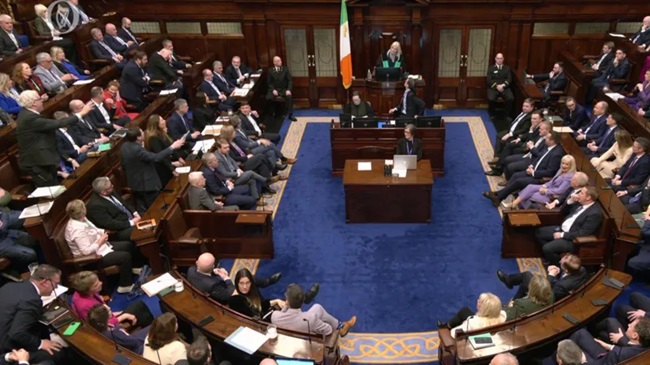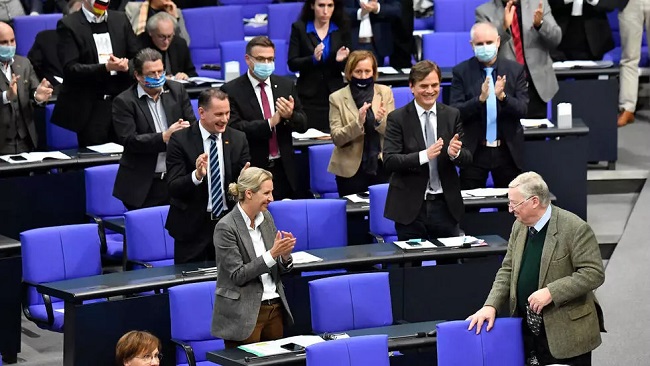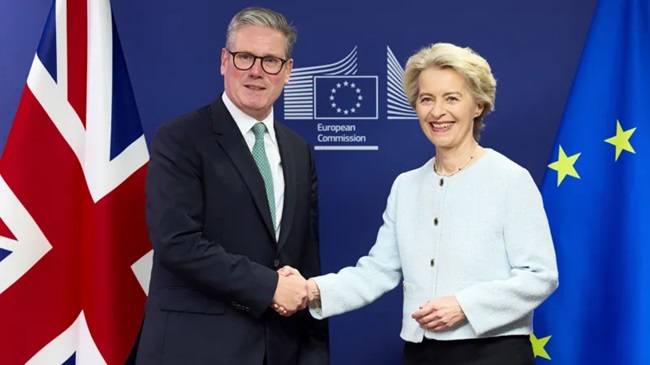22, January 2025
Ireland: Election of taoiseach delayed as dáil suspended amid disorder 0
The election of a new taoiseach has been delayed after a bitter row in the Dáil (Irish parliament), forcing the suspension of proceedings twice.
The Irish parliament returned to nominate Fianna Fáil leader Micheál Martin as the new taoiseach (prime minister) before he is formally appointed to the office by President Michael D Higgins.
Ceann Comhairle Verona Murphy called for a 15 minute suspension after Teachtaí Dála (TDs) refused to “stop shouting” at her and take their seats.
After it resumed several TDs continued to challenge her over a decision to allow independent TDs who are supporting the government to sit on the opposition benches.
They refused to take their seats and the proceedings were then suspended for 30 minutes.
Ceann Comhairle Verona Murphy suspended the Dáil for 15 minutes
Sinn Féin President Mary Lou said it was a “brazen” move by the government to allow this arrangement to happen.
Source: BBC

























31, March 2025
France: Marine Le Pen barred from running for public office for five years 0
France’s Marine Le Pen has been barred from running for office for five years after being found guilty of misappropriating European funds to finance her far-right National Rally (RN) party.
The momentous decision means Le Pen will likely not be able to stand in the 2027 French presidential election. It would have been her fourth attempt, and the one offering the greatest chance of victory.
Judges imposed immediate ineligibility with her conviction, meaning the ban on holding public office will now come into effect even if Le Pen appeals.
She has also been given a four-year prison sentence, of which two will be suspended. The other two can be spent with an electronic tag rather than in custody.
Le Pen has also been given a €100,000 (£82,635) fine.
She will very likely appeal the jail sentence, so it will not apply now.
At the start of the reading of the verdict, the judge, Bénédicte de Perthuis, said Le Pen had been at the “heart of the system” which saw the embezzlement of €2.9m worth of European funds.
Le Pen was accused, along with more than 20 other senior party figures, of hiring assistants who worked on her RN party affairs rather than for the European Parliament which paid them.
During the trial last year, Le Pen denied she had committed “the slightest irregularity”.
There has not yet been any comment from Le Pen, who left court before the sentence was issued alongside other defendants and headed to the RN’s Paris headquarters. She is expected to give an interview to French TV at 20:00 (19:00 BST).
At the weekend, Le Pen had told media that while she was “not nervous”, the judges had “the power of life or death over the [political] movement.”
Shortly before her sentencing, Le Pen received messages of support from the Kremlin, Hungary’s Viktor Orban and Italy’s Matteo Salvini.
“It is not just Marine Le Pen who has been unfairly sentenced: it’s French democracy that has been executed,” Jordan Bardella, the president of the RN, wrote on X.
But some of Le Pen’s opponents have also stated they disapprove of the judge’s decision.
“The choice to dismiss an elected official should only belong to the people,” said Jean-Luc Mélenchon of the far-left France Unbowed (LFI).
And Laurent Wauquiez, of the right-wing Republicans, said that the decision would “weigh very heavily on the functioning of our democracy”.
“It’s undoubtedly not the route that should have been taken.”
The reading of the verdict, which started shortly after 10:00 (09:00 BST), took nearly three hours.
Source: BBC